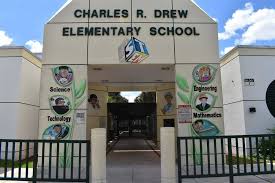Case Study: Improving 5th Grade Science Milestones Scores at Northwest Laurens Elementary
Introduction
Neeli Barwick M.Ed. teaches 5th grade science and math at Northwest Laurens Elementary School in Dudley, Georgia. We recently met up with her to learn how she used Progress Learning to increase her school’s Georgia Milestones scores in 5th grade science.
Background
The 2022-2023 school year was Neeli’s first year using Progress Learning in her 5th grade class. Neeli had previously used our legacy program USATestprep as a high school teacher and had seen a lot of success with it. When she came to Northwest Laurens Elementary, she worked with her principal (who had also used Progress Learning) to bring the platform to her school.
The Problem
In the 2021-2022 school year, Northwest Laurens Elementary’s 5th grade science Milestones scores were at a 45% pass rate — the lowest of any subject. Historically, the school performed above the state average in every other subject. However, science scores were lagging behind.
Neeli suspected this was due to a lack of rigor, as well as limited options for intervention and tracking student data. Hoping to steer her school in the right direction, Neeli subscribed to Progress Learning for 5th grade science.
The Solution
Progress Learning proved to be an effective content solution for science. It allowed Neeli to create GSE-aligned assessments, provide the appropriate level of rigor, track student progress, identify areas of need, and assign remediation.
When we asked Neeli what the most useful tool was within Progress Learning, she responded immediately, “It’s really the assessments because I use the assessments in a wide range of ways. I make them for practice to review, to assess, and as a bell ringer.”
Before Progress Learning, Neeli said it felt like she was “flying blind” on assessments. “We either had to make our own assessments or find them off TPT [Teachers Pay Teachers].” With Progress Learning, she was able to easily create assessments and ensure they had the right level of rigor to challenge and engage her students. “I would weight my assessments… and make sure that I put at least one DOK 3 and a lot of DOK 2s on there… to teach kids how to analyze and evaluate.” This ensured her students were exposed to higher-order thinking questions.
To prepare for the Milestones test, she administered an end-of-grade practice test from Progress Learning. “I used that as a predictor to see what they would make on the Milestones, and it was spot on,” said Neeli. Another part of the assessments that was spot on? “The technology-enhanced questions. It is so aligned to the Milestones so [students] become incredibly familiar with the format and having rigor in the questions.”
In the two weeks leading up to the Milestones, Neeli would use the data from the EOG practice test to remediate. Before Progress Learning, “there wasn’t a whole lot of remediation or a way to track data. And so that was one thing we found with the program, is that it was great for that. I could track areas of need, what the students had gotten, and what they hadn’t.”
Besides the assessments and data, Neeli used Progress Learning in her daily instruction. Every morning, she would start her class by assigning 3-5 questions as a bell ringer. The students would go on the computer and complete the questions. Then, Neeli would pull them up on the board and go through them together as a class. She said that this was crucial for teaching her students test-taking skills, as well as reading comprehension. “Vocabulary and comprehension is one thing that we found really holds them back with the science,” said Neeli.
She also noted how difficult it can be to provide enrichment for students who are excelling. Progress Learning offered an easy fix. “I used it for kids to preview the lessons before we start it. Like today, we will have an assessment on animal classification and we’ll start plant classification tomorrow. So, if I have an early finisher with the animal classification, it’s already assigned. They’ll go in and watch the videos and start some questions on plant classification to preview what’s coming up.”
Finally, Neeli highlighted how Progress Learning provided much-needed structure and accountability in science education. Science isn’t tested on the Georgia Milestones until 5th grade, so it can be hard for teachers in lower grades to ensure they are on the right track. She said the platform offered guidance to both new and experienced teachers in meeting standards effectively.
The Results
The results of using Progress Learning at Northwest Laurens Elementary were outstanding. In Neeli’s classroom, 71% of students scored threes and fours on the science Milestones (proficient learners and distinguished learners, respectively).
As a whole, the school achieved a remarkable 68% pass rate in 5th grade science, marking a significant improvement from the previous year’s 45% pass rate. Northwest Laurens Elementary surpassed the state average by nearly 30 points and was the top performing school in the region out of 12 schools.
Next Steps
Neeli is excited to keep using Progress Learning, particularly in math where Georgia has a whole new set of standards. Looking ahead, she plans to incorporate Progress Learning as a benchmark tool for both math and science. She is also planning to run Progress Learning contests in math and science to motivate and challenge her students further.
Way to go, Neeli & Northwest Laurens Elementary!
Want to boost your science Milestones scores like Neeli? Schedule a demo with us today!


